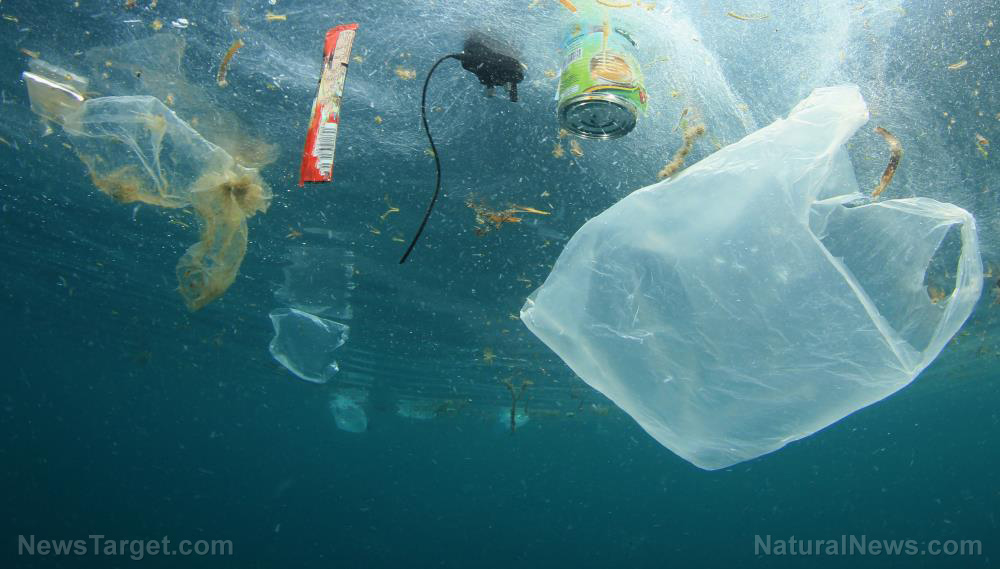Marine life in one of the most biodiverse waters in the Philippines not spared from horrors of plastic pollution
08/28/2019 / By Stephanie Diaz

A three-day underwater exploration by Greenpeace South East Asia documented large amounts of plastic pollution that threatened marine life in the Verde Island Passage in the Philippines.
Single-use plastics pollute one of the most biodiverse waters in the world
In 2006, the Verde Island Passage in Batangas City was crowned the “Center of the Center of Marine Shorefish Biodiversity” by a team of marine conservationists. Many people consider the strait a diver’s paradise because it has one of the highest concentrations of marine species in the world. It is home to 1,700 species of fish and 338 types of corals, as well as several species of sharks and sea turtles. However, a recent investigation from Greenpeace found that the pristine waters are littered with toothpaste, coffee, and food wrappers.
The exploration revealed photos of single-use plastics with visible signs of being submerged in water for a long time. Some of the plastics found were packaging materials from multinational companies like Nestle, Unilever, and Colgate-Palmolive. They also captured images of single-use plastics from local brands such as Zagu, Nutri-Asia, and Monde Nissin.
“This is undeniable proof of how irresponsible single-use plastic production by fast-moving consumer goods (FMCG) companies threatens our pristine environment,” said Abigail Aguilar, campaigner for Greenpeace Southeast Asia.
“If big companies such as Nestle and Unilever don’t respond to our calls for reduction in single-use plastic production, these places of ‘paradise’ like Verde Island Passage, will be lost.”

A report from the Global Alliance for Incinerator Alternatives (GAIA) stated that Nestle and Unilever are responsible for approximately 25 percent of the plastic pollution in the Philippines. Furthermore, the report revealed that 163 million sachets produced by fast-moving consumer goods (FMCG) are among the biggest pollutants in the country.
Greenpeace is calling the attention of corporations to take immediate action to eliminate single-use plastics for the sake of affected communities and marine wildlife.
A planet of plastics
Plastic pollution affects all avenues of life. It negatively impacts the natural environment and create problems for plants, wildlife, and humans. Although plastic is incredibly convenient, it is also incredibly toxic to the environment. The list below details just some of the numerous impacts of plastic pollution.
- Animal death: Animals often mistake plastic waste for food, which can block their guts and cause starvation and death. In fact, large amounts of plastics have been found in the gut of many dead animals.
- Effects on human health: Plastics are made from different types of toxic chemicals. So the use of, and exposure to plastics have been linked to a variety of health concerns. For instance, chemicals from plastics like polybrominated diphenyl ether (PBDE), bisphenol A (BPA), and phthalates are known to affect the endocrine system, which can be detrimental to women of reproductive age and young children.
- Land pollution: Plenty of plastic wastes can be found in landfills, which have been linked to the destruction of the Earth’s land quality. These plastics take hundreds of years to break down, and when they finally do, they release harmful chemicals on the land. These chemicals harm not only people but also animals and plants.
- Air pollution: When plastics are burned, they release poisonous chemicals into the air, which can cause respiratory problems in humans and animals.
It does not take much to help reduce plastic pollution. You can do your part by not using plastic straws, bringing your own container to cafes and restaurants, and bringing your own reusable bag in grocery stores.
Sources include:
Submit a correction >>
Tagged Under:
This article may contain statements that reflect the opinion of the author





















